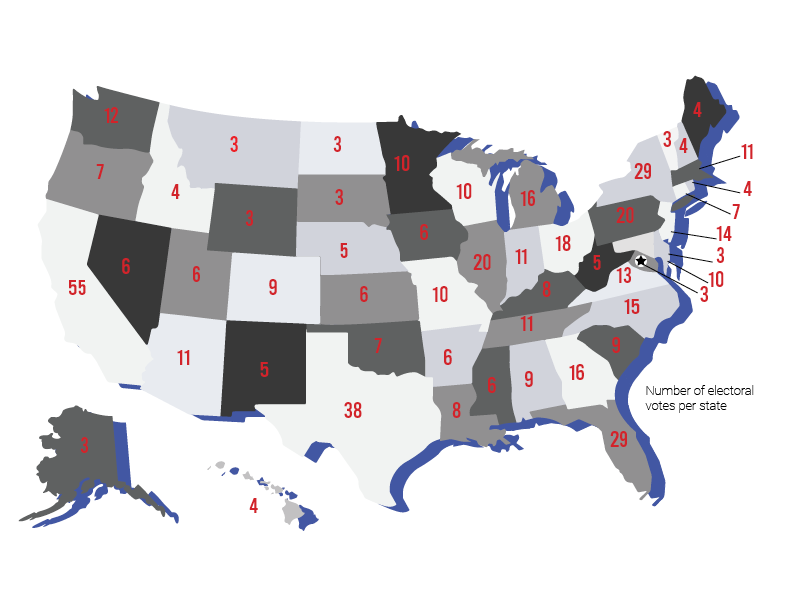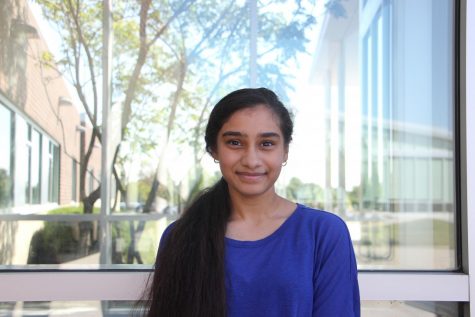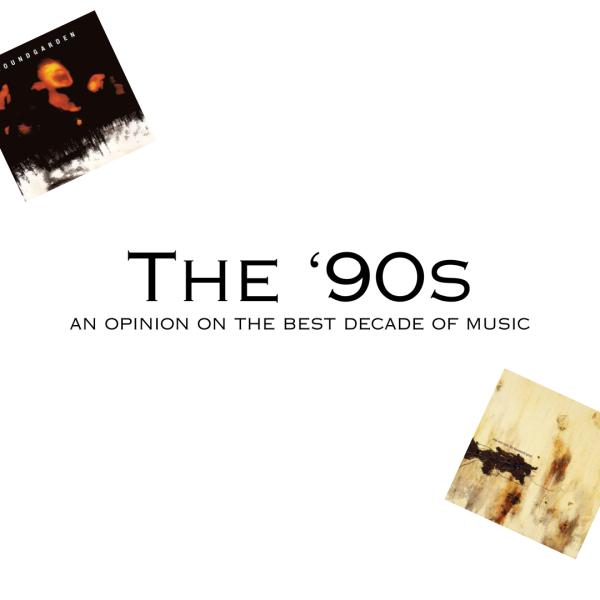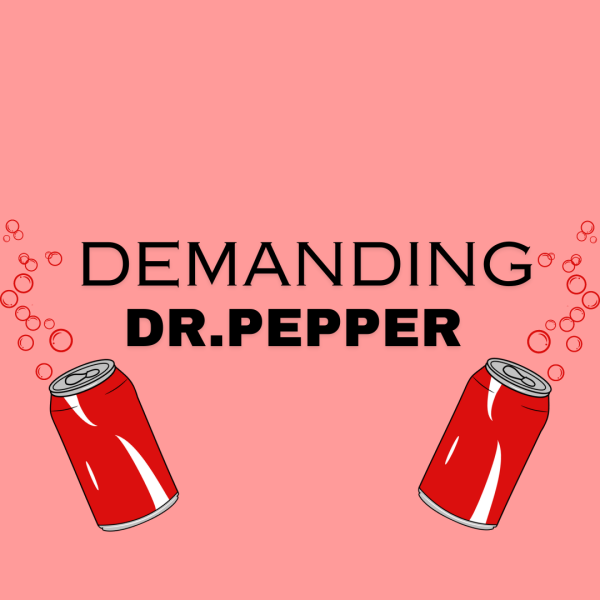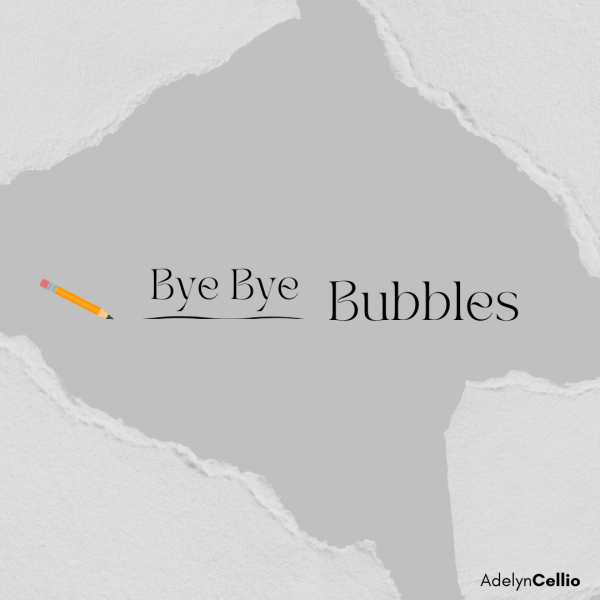Electoral Dilema
Electoral College losing significance in today’s society, should be abolished
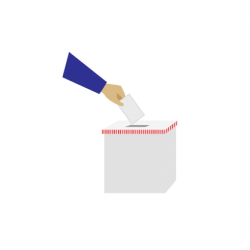
The role of the electoral college has been in question for many years, and support for it has dwindled as more and more people have joined in opposition to it. The issue is never more prominent than in election years, especially because the electoral college has the final say in who is elected as president.
The electoral college consists of 538 elected delegates who represent counties and states. These electors cast their vote on behalf of the citizens they represent. Leochner said, for the most part, they remain loyal to their county.
The founding fathers came up with the idea of the college because they were afraid the common people would be uneducated and would elect someone who was not fit to be president. Hence, they restricted the vote to those who owned property at first.
However, times have evolved and priorities have changed. All states require some sort of high school education. Additionally, widespread information about anything is simply a touch away. People can quickly be educated on each political candidate and their policies.
Giving it the benefit of the doubt, junior Ben Ziegelman said he understands some situations why the electoral might be needed.
“I understand the purpose of it [because] there’s a lot of voters who might not be fully educated on what they’re voting on [or] voting for fun,” Ziegelman said. “Maybe they don’t even actually know what policies they’re voting for. So I understand that it can be good for those reasons.”
Social studies teacher Dustin Leochner has been teaching America Decides the National Election for the past three elections. He said he personally thinks there needs to be changes within the electoral college if it is continued to be implemented.
“[The Electoral College] is largely obsolete and its original purpose can’t really be fulfilled at this point in history,” Leochner said.
Leochner said he doesn’t necessarily support getting rid of the electoral college, but he said it should be adapted to the current political and social structure.
“I would like to see the electoral college function as it does in Nebraska where it’s by congressional district, and whatever candidate wins that congressional district, they get that district’s electoral vote,” Leochner said. “I think that would be how I would change it.”
For there to be productive elections if the electoral college is abolished, states would have to view and implement similar voting in every area. However, this would be difficult because the federal government cannot mandate such actions across the entire country. Ultimately, it is the state’s choice to decide if they would conform with the new basis of voting. Additionally, the voters should be educated on the pros and cons of each candidate prior to voting. Most preferably, the information should be displayed on the ballot, similar to California’s method. Even in an age when information is found within a few seconds, it’s difficult to maneuver through the biased articles and information to find the truth.
The continuous use of the electoral college almost undermines an idea of the democracy the United States is portrayed as. Most people have preconceived notions that it’s the people who decide the officials and the president, however this is not the case.
Senior Leah Goldstein said she believes the electoral college is an injustice to the American people.
“I think it’s a little controversial. I don’t think it’s totally fair, just because a candidate could win the popular vote and still lose the election due to them losing the electoral college,” Goldstein said. “And I think a better way would be for them to just count up the percentages of the popular vote, because I think if they use the votes from the Electoral College, it’s kind of contradicting with the idea of democracy.”
This system could discourage voters from voting, especially if their state is not a swing state because, in the end, their vote would not matter if they vote in the minority.
“It’s already population based, and so what that does is it creates a system where like someone in Wyoming’s vote is worth like, five times that of someone in California, which I don’t think is a good thing,” Ziegelman said.
Goldstein shares a similar opinion as Ziegelman.
“Bigger states have more votes, smaller states have smaller, less votes,” Goldstein said. “I don’t really think that there’s a way to change it, but I definitely think it should be changed.”
Although the electoral college has the final decision in electing the president, there’s only so much it could do before it pushes people over the edge.
“If an unqualified person were to be elected by the populace, [the electoral college] would step in and make sure that somebody else actually became president,” Leochner said. “I think that’s highly unlikely to happen now because I think you’d have widespread protest on your hands.”
During previous elections, the electoral college has only elected a different candidate to be president who was losing by a small number in the popular vote. The most recent ruling in such an instance was during the 2016 presidential election.
In 2016, Democratic nominee Hillary Clinton won the popular vote, but due to the Electoral College, Republican nominee Donald Trump was elected president. Many people were in shock, regardless of their political stance.
Goldstein, like many others, was confused and surprised by the results.
“I was younger then so I didn’t really understand what was happening. But my mom, my parents were surprised and shocked that that happened,” Goldstein said. “And so I kind of was just surprised by how people thought it was going one way and then went the opposite.”
Leochner said he has observed some good in the system. He said it forces the candidates to campaign in all states equally.
“If you leave it up just solely to a popular vote, then candidates can zero in on the big cities on the urban areas in the population centers and ignore the rest of the country,” Leochner said.
Ziegelman said the Electoral College is in no way beneficial for politics. He said he would like to abolish it and only use the popular vote.
“Even if the Electoral College were to be in line with what I would want, I really think it needs to come down to the popular vote,” Ziegelman said.
The country no longer has use for the current electoral college. The process of voting and electing a president should be rethought to be adapted toward today’s society.
“Under its original intent, I think that’s a wise thing to have to have some sort of emergency kind of trigger, to make sure that we don’t get led astray and elect somebody unqualified to be the president,” Leochner said. “But I think in the modern context, knowing that that is a near impossibility that the electoral college would actually function that way, I don’t know what the argument is in favor of it.”
